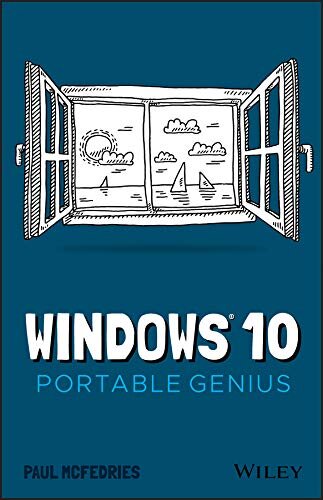Like its sister volume Excel Portable Genius, this book is nice and compact, written with the non-techie user in mind. It’s geared towards individual users rather than, say, a school network, which in any case would be managed (hopefully) by a technical support person or team. But that is exactly what many teachers need in these days of (sporadically) working from home.
Many people need to find ways of shaving time off of tasks, and getting more done in a day. This book covers both. For example, you can control how frequently you receive incoming email, and set up an email signature to save you having to type out the same text at the bottom of emails time after time. For example, you might want each of your emails to end with “Best regards, Fred Bloggs, Head of English, Gasworks Lane School etc”.
Other useful information includes using the built-in voice assistant, Cortana, making Skype calls, and how to get more out of Windows 10 on a tablet pc. (This last includes helpful guidance on converting handwritten text into digital text that you can manipulate in a word processor.)
For those who feel less than confident with technology in general, and Windows 10 in particular, this is a very useful guide. It will also suit those people, like me, for whom Windows 10 is a relatively new experience and who would like to get “up to speed” in as fast and painless a way as possible.


